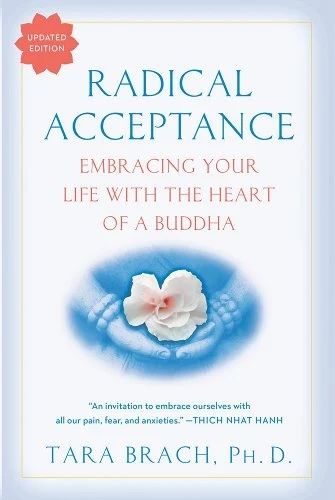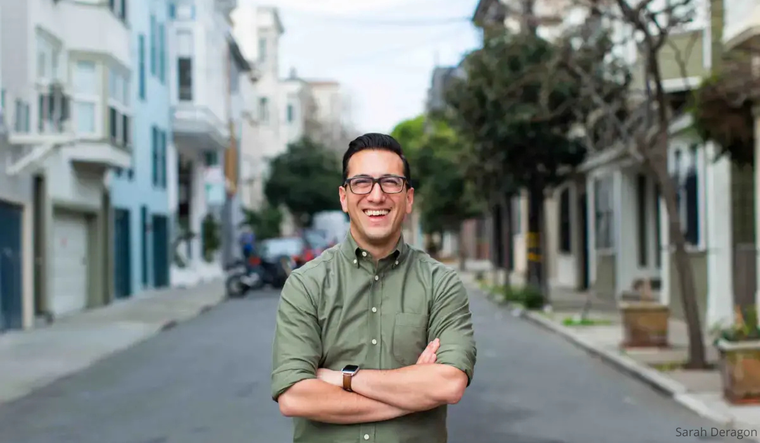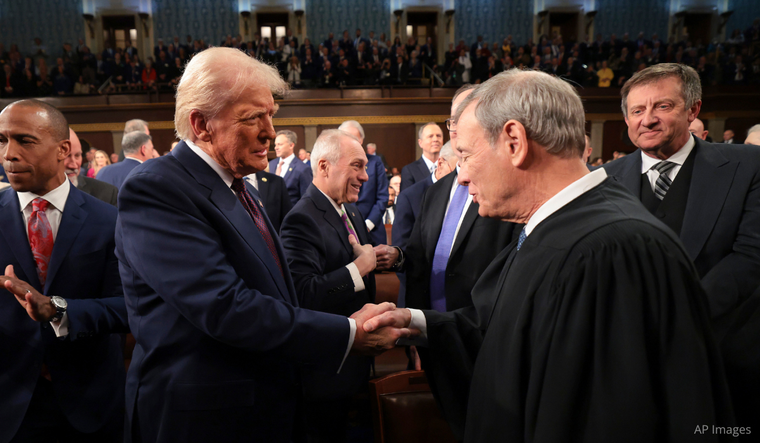Psychologist and Meditation Teacher Tara Brach Shares 3 Practices to Strengthen Our Sense of Collective Belonging in These Terrifying Times
"This feels like a time we need to keep our hearts wide open," Tara Brach tells The Sunday Paper over the phone. "We are in global trauma. We're facing existential threats, from climate change to pandemics to forced migration and democracy's destabilizing. It's difficult to process or digest the threats we're facing."
Large parts of our Western culture condition us to think we should face these threats on our own. These individualist ideas perpetuate the notion that we must roll our sleeves and march solo. But Brach believes the opposite. "Our deepest longing is for belonging," the psychologist and meditation teacher says.
But how do we begin to feed this need when our lives seem so polarized? We asked Brach to show us the way.
A CONVERSATION WITH TARA BRACH PHD
The world is hurting right now. There's polarization, global trauma, loss. Tara, what are you seeing, and what can we do to navigate this pain?
We are in global trauma. We're facing existential threats, from climate change to wars to pandemics to forced migrations to democracy's destabilizing. It's difficult to process or digest the threats we're facing. In these recent days, with the horrific violence in the Middle East, so many hearts are crying, "Please make it stop."
I find it helpful to think of what happens to an individual when we're traumatized. Trauma is disconnection. When we go into fight-flight-freeze, our executive function shuts down, and there's no access to empathy, compassion, and connectedness. We are cut off from others and from our own heart and spirit. We are hijacked by the survival limbic brain, and the unprocessed fear gets expressed through the hatred and contempt of others. We create enemies, bad others who are less than human, and aggress against them. This trauma reaction is species-wide right now, and the suffering is heartbreaking.
Buried under all our trauma is the longing to live fully, the longing to belong, to be fully connected to life. We are longing for the belonging that brings true love, peace, and freedom. From an evolutionary and historical perspective, we have the capacity to experience and live from a sense of relatedness beyond kin. We have the capacity for collaborating, communicating, and caring; this has been the single most formative force in our species development. So, to undo our trauma and face the current threats to our living Earth, we have to evolve consciousness and deepen this capacity for love. We have to awaken our hearts and minds so that we can hold hands and seek a collective healing.
How do we start to lean into our collective belonging?
In many shamanistic cultures, it's believed that when a person is traumatized, the soul leaves the body as a way of protecting itself from intolerable pain. Then, in a ceremony called Soul Retrieval, the traumatized person is held in the love and safety of community as the soul is invited to return.
For us, individually and as a society, we need processes of reconnecting and of coming back into wholeness and reintegrating our wounded places, our heart and spirit into our lives. That is the purpose of awareness practices like mindfulness and compassion. No matter where our starting point is, if we pause and deepen our attention, these practices will bring us to more wholeness. Neuroscience shows that they activate the prefrontal cortex and restore communications between brain networks. When we start deepening attention and becoming more present, there's a sense of homecoming into a natural and open-hearted awareness.
Will you walk us through a way to reconnect and deepen our attention?
I saw the power of this recently. I was working with someone who was in the grip of a very painful reaction of anger and blame around the horrific resurgence of violence in the Middle East. She knew she was stuck, cut off from her heart and wisdom in those moments. She kept saying, 'There's so much hatred. I don't want to seed more of it,' which was so powerful.
Together, she and I did the RAIN practice, which is the weaving of mindfulness and compassion.
The beginning of RAIN is the R, which stands for recognize. So first, she named what was happening with a mental whisper: blame and hatred.
The A stands for allowing, letting the experience be there without judgment or blame. So she paused to simply let it be.
Next, the I, is for investigating what is underneath. She felt this powerlessness and a pained grieving voice saying, 'There's no answer…I don't see an answer.' So I asked her to contact that deep vulnerability in her body, and there was an ocean of grief.
I asked what that place of grieving needed, and this led to the last step of RAIN, the N, which is for nurturing. She said, 'It needs me to accept not knowing and to hold this grief with kindness.' She put her hand on her heart and just held what was in her heart. Embedded in the grieving was love, and she said softly, 'I love life, I want to protect life.' Her heart was open and tender with an all-inclusive caring.
The RAIN practice helped her move from the trance of reactivity, which divided her from her wholeness and from others, into an open-hearted presence.
Reconnecting begins with pausing and tending to what is inside us. We wake up from our reactivity by fully forgiving and honoring the anger, the hatred, the emotions that arise. All our emotions are intelligent, and it's wise to listen to the message they give us. But we must not stop there. Because if we act from anger and hatred, we're going to sow more seeds of the same. Instead, if we meet what arises with presence and care, we'll come home to a heart wisdom that can guide our actions. We can communicate and live more and more from love. Our lives become an expression of love in action.
When we pause to deepen our own attention, how does that impact the greater collective?
The path to bringing love to our world begins by healing our inner divides. If we are willing and courageous enough to feel what's going on inside us, to really contact the feelings of personal deficiency, fear and vulnerability and be intimate with them, that's what gives us the capacity to be intimate with others. That's what gives us the capacity to look more closely at another and sense where they might be hurting and what it's like living in their circumstances. That's what lets us sense that another person, like ourselves, longs to feel safe, forgiven, loved or understood. Connecting with our own vulnerability with an embodied and kind presence is the very grounds of how compassion is cultivated: We start by opening with tenderness to our own inner experience, and then that space of tenderness naturally can include the pain and suffering of others.
In a similar way, when we bridge inner divides, we become aware of our basic goodness—the care in our hearts, our natural intelligence, creativity, longing to be awake. And this enables us to appreciate the goodness, the light that shines through all beings. Seeing goodness fills us with a very pure loving. It's a beautiful reflection just to slow down and practice with others: seeing what we love about them and mentally saying thank you or I love you. And reminding others of their goodness is one of the greatest gifts we can give because so many experience the trance of unworthiness.
As Ram Dass said, 'We're all just walking each other home.'
There is a lot of painful blaming happening. What is your advice for moving beyond this?
Just as we learn to open our hearts to our own vulnerability and to those of those we know, we can intentionally widen the circles of compassion to include others in this world. I think of [Henry Wadsworth] Longfellow. He wrote, "If we could read the secret history of our enemies, we should find in each man's life sorrow and suffering enough to disarm all hostility." Those who we might blame for causing suffering are suffering. Under their aggression is unprocessed fear, hurts, feelings of shame, and deficiency.
While shifting from blame to compassion takes practice, dedicating ourselves to this shift is crucial if we are to free our own heart and be part of the healing of our world. We can reflect on others from groups that are different from us and difficult to relate to, whether it's political, ethnic, racial, or religious, and bring an individual from that group to mind and imagine what pain they might be living with. If we are willing to open to this suffering with care, we will begin to sense our shared humanity and start releasing the blame that armors our hearts.
Tara, if we all could only do one thing to feel more connected and less divided, what would that be?
What we can do when we wake up in the morning is ask ourselves the question: What is love asking from me today?
Start with this moment. What is love asking from me in how I relate to my inner life? Maybe love asks you to be brave and open tenderly and fully to your own fear.
And then widen it: What is love asking from me today in relating to whoever I'm going to be seeing?
And then finally: What is love asking from me in relating to this hurting, precious world? I belong to this living world… What is love asking from me?

Tara Brach, Ph.D. is a meditation teacher, psychologist and author of several books including international bestselling Radical Acceptance, Radical Compassion, and Trusting the Gold. She is the founder of the Insight Meditation Community of Washington and, together with Jack Kornfield, has co-founded Cloud Sangha and the Mindfulness Meditation Teacher Training Program.
Please note that we may receive affiliate commissions from the sales of linked products.



